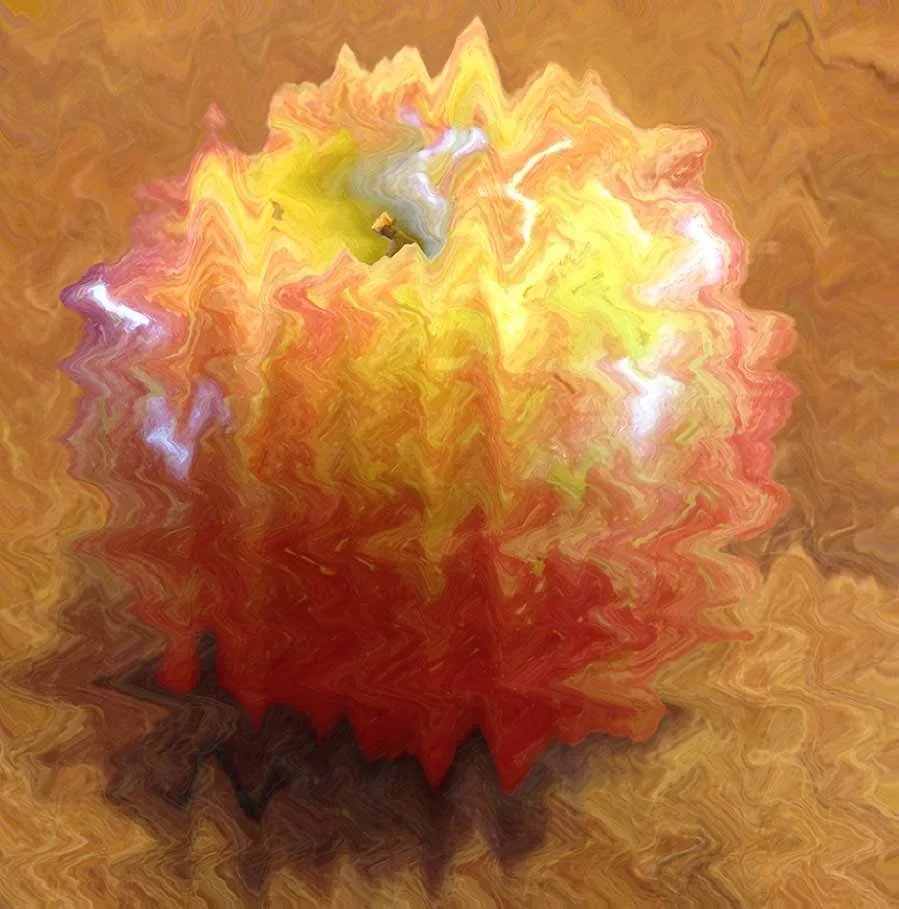
Approximately one month ago, a Kroger cashier complemented me on my choice of Honeycrisp apples.
I thanked the cashier for complimenting me, and said that Honeycrisp apples were “the best apples ever.”
The cashier said that while Honeycrisp apples were good, Kiku apples were the best apples ever.
I told the cashier I had never heard of Kiku apples.
The cashier said that Kiku apples were amazingly sweet, came from Japan, and that Kroger carried some every once in a while.
Approximately one week ago, while walking through the apple aisle in Kroger, I saw an unwaxed apple with the label, “KIKU.”
I bought five.
Development of the KIKU Apple
Kiku apples as you might find in an American grocery store (which appear to be trademarked as “KIKU”), come from a natural Japanese varietal called KIKU8.1 In 1990, while vacationing in Japan, an Italian apple grower named Luis Braun found the KIKU8 growing in a Fuji apple orchard.2 Braun took a branch back to Italy, and began development on the modern KIKU. Currently, the only KIKU apples grown in America are done so by select orchards in Washington, Michigan, and Pennsylvania.3
Taste Test
I felt underwhelmed after eating the KIKU apples I purchased, though I would still rate the KIKU apple as “a very fine apple.” They seemed very sweet, crisp, and otherwise unremarkable — perhaps intentionally so. I can imagine Luis Braun biting into a KIKU prototype while standing on an Italian mountain side, saying, “no other aspect of this apple will get in the way of its sweetness.”
I decided to go back to Kroger and buy a Granny Smith apple and a Red Delicious to try against my remaining KIKU, back-to-back-to-back. The Granny Smith served as a palette cleanser. I’d eat a slice of the Granny Smith and pucker at the tartness and switch over to the Red Delicious and then the KIKU.
The KIKU apple may be slightly sweeter than the Red Delicious, but the most noticeable difference is that the Red Delicious has some other flavor — I think the peel — that kind of hits you in the side of your tongue. The KIKU apple has none of that. The KIKU is just sweet.
I expect that I will occassionally buy KIKU apples when I see them, from time to time, for the sake of variety. I do not anticipate that I will quit my job and move to Michigan to camp next to a KIKU orchard during apple season. They’re interesting as a “sport variety” apple, but perfection can be boring.
References
- KIKU-apple.com. Story - more than 20 years KIKU.
- Marks, Michael. 2015, March 4. Kiku apples: A Fuji with extra personality. The Mercury News.
- CMI. KIKU Brand Apples.